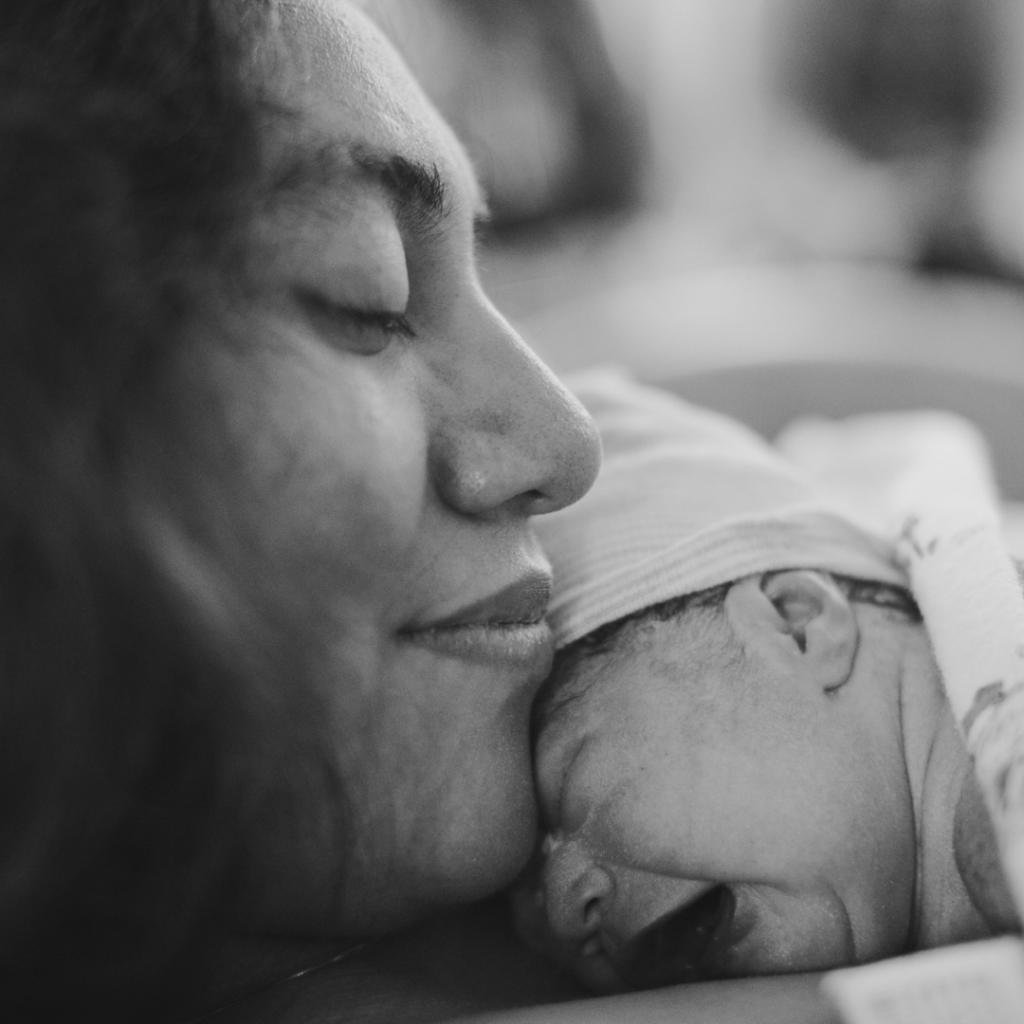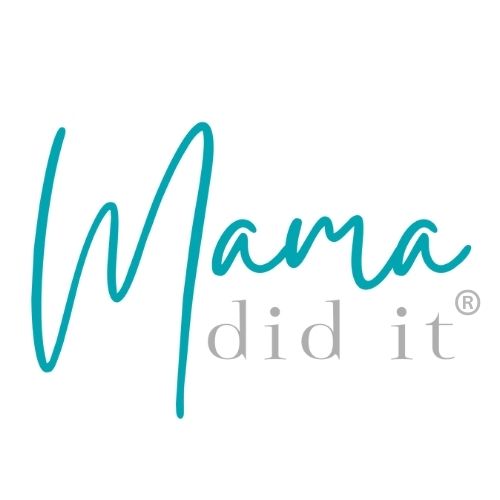A postpartum nurse answers “How do I bond with my baby?”
Let me start out by saying that bonding while our baby is in the womb or even after birth isn’t always automatic. Several things can affect this bond! We will look through a few of these reasons and also answer the question, “How do I bond with my baby?” Included are six ways to help!
This may be the most important thing you read from me today: Your baby is not rejecting you.
Your baby’s cries can feel overwhelming. When you try to meet your baby’s needs, but it doesn’t seem to help, this can lead new mothers to feel their baby doesn’t like them. It isn’t true. A baby’s brain isn’t capable of choosing rejection. Don’t give up, Mama!
And here’s another important truth: maternal affection can grow. Just because you aren’t feeling it right now, doesn’t mean you won’t feel it.
Is it normal not to feel a bond with my baby?
It can be. And it may not be as well. Let’s explore this a little further.
With one of my own children, I had trouble initially bonding with them. It was odd to me because I hadn’t ever not felt it before. To look at my baby in the bassinet and feel that they weren’t mine was unsettling.
I struggled with a lot of shame over it. I was already a mom and a nurse. This should come naturally. What was going on? I didn’t want to tell anyone how I felt. What if they thought I was a bad mom? I know how easy it is to carry shame if you struggle with new motherhood.
When I finally opened up to my husband in the early months about how it felt in the hospital, he said, “You know, you didn’t get the golden hour with them like the other babies.” The nurse had tried to regulate my baby’s temperature with a warmer, and it wasn’t going well.
Losing the golden hour doesn’t affect all mothers this way, but it did me.

Reasons you aren’t bonding with your baby
Here are five common reasons moms may struggle to bond with their babies. And below, we will look at six ways to increase that bond.
1. If you are in a complicated relationship or your pregnancy caused complicated circumstances, it may cause distant feelings towards your baby.
When you are struggling, it affects every area of your life, including the bond with your baby. The pressures of having a new baby can also add strain to a relationship which exposes issues or even past hurts that haven’t been dealt with.
2. Did your birth go as expected?
Right now, one-third of new moms in the United States have c-sections. Many of these are unplanned. If your birth wasn’t like you had hoped, you had unwanted interventions, you felt powerless or like you weren’t listened to, or your baby had a NICU (neonatal intensive care unit) stay, it may be affecting how you bond with your baby. All isn’t lost. This can be fixed.
3. You didn’t get the “golden hour” after birth.
The Golden Hour is the uninterrupted time after birth when your baby stays skin-to-skin on your chest. This isn’t just a “nice thing” to happen. Physiological responses are going on in your baby and in you! Losing the golden hour may delay the bonding process.
4. Not all moms feel gushy over motherhood, and that’s okay.
Maybe nurturing doesn’t come automatically to you. Maybe you weren’t shown that growing up or didn’t have a strong parent-child bond with your own family members. Loving relationships grow, even the mother-baby one. You can still be a great mom without being a gushy one.
5. Postpartum depression or postpartum anxiety.
These are both complicated issues that aren’t caused by one single thing. From brain plasticity at birth where we are losing and forming new brain connections, to hormone changes, as well as family of origin heart issues, several things go into these diagnoses. But no matter the reason, you aren’t dealing with these because you did something wrong. It just happens. It isn’t your fault, but getting help and healing will need to be your choice.
How do I bond with my baby?
The perfect time to start a close relationship with your baby is now. Everything on this list comes from evidence-based, credible sources for bonding with your baby. They’ve been proven time and time again!
Don’t feel the pressure to do them all. Even working on a few simple ways at a time, will help the bonding relationship.
Remember intimate relationships are GROWN. Your baby may not respond well right away. Keep trying.
1. Breastfeed if you can, even if it’s short-term.
Breastfeeding is a great way to facilitate bonding. The oxytocin released in breastfeeding creates a strong bond between both mom and baby. There is no shame though if it’s too late to breastfeed. Bonding can happen in lots of ways.
2. Do skin to skin contact often.
Skin-to-skin means having your baby in just a diaper on your bare chest. You can cover you both with a blanket if you need to. Keep your baby close.
Your baby isn’t clingy! For the next several months of life, they believe they are a part of you. You are their person. Do skin-to-skin often (babies are highly sensory and love this!) and baby wrap when you can.
3. Make eye contact.
Let your baby’s eyes meet yours. Make funny facial expressions and smile big as they study you. It’s best to work on this when they are in the quiet alert state: awake and quiet, not fussy.
4. Talk to your new baby.
Your baby has known the sound of your voice since the second trimester. You are soothing to them. A secure attachment is formed as you interact with your newborn baby. This also helps them with social development and language development for the future.
5. Get involved in their daily routine.
Even if you feel it doesn’t come naturally. Practice the diaper change, do the daily routines like bathing. Provide the basic needs like swaddling. Your baby is learning and so are you. Give yourself grace as you learn to care for your baby.
6. Respond to your baby’s cries quickly.
This helps with their emotional development and helps build a trusting relationship between the two of you. Babies can not be spoiled in infancy. They aren’t born with the ability to manipulate you. Responding to them quickly will teach them they can trust you.
How do I bond with my baby?
Nobody is a perfect parent! Not even Miss stay-at-home, fitness Instagram mom. Don’t buy into that lie. If you have been working on these options for several weeks and still are having trouble connecting with your baby, it’s time to seek out some help.
Calling your OB or making an appointment with a postpartum therapist is needed. Fear or stress could be occupying the place of a bond. That’s hard to work through alone. Whoever you talk to, make sure they are listening. If you’ve already been doing these suggestions and are sent home with a “it will get better,” you need to seek help in another place.
Some mothers simply don’t like the newborn stage. That’s understandable. It is HARD. But it does get better. Soon your baby will smile at you, begin to make coos, and even reach for you. All of these things help to grow that bond. Continue to love and care for your baby, even if it’s not because you feel a gushy, loving bond. It will still develop trust between the two of you and make room for that bond to grow.
If you want to learn why your baby does what they do, “The Happiest Baby on the Block” is one of the best resources I have found on it. It’s a good read!
Visit my postpartum timeline for quick tips and normal expectations for your recovery after childbirth.
